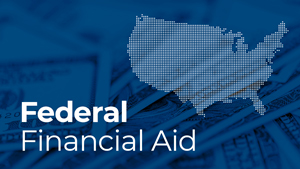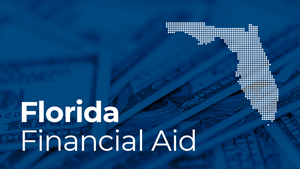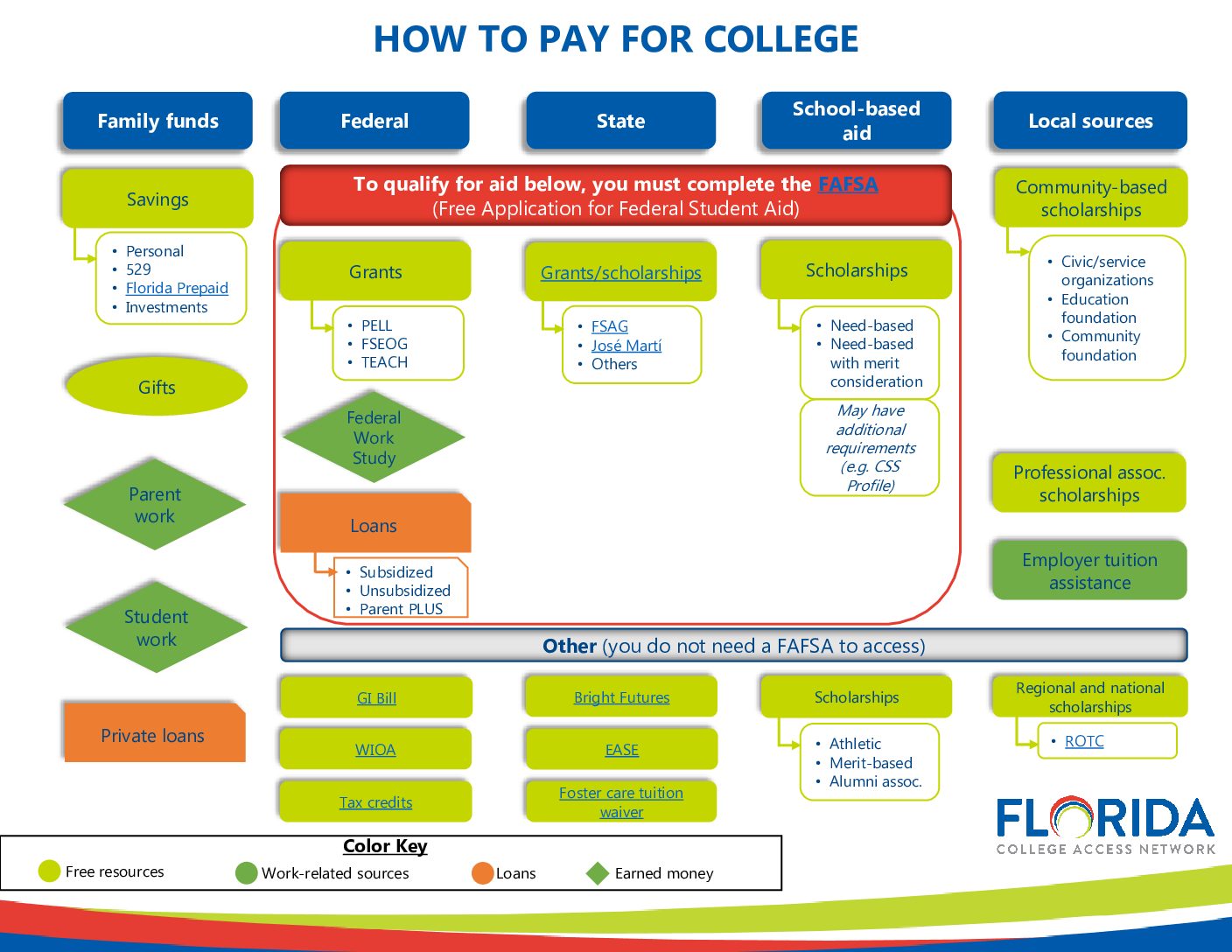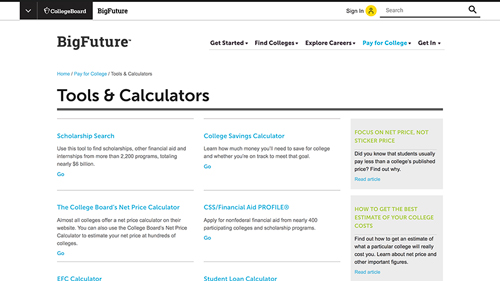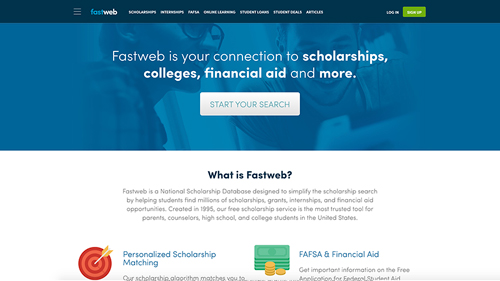Financial Aid
Financial aid helps students and their families by covering higher education expenses such as tuition and fees, room and board, books and other coursework supplies, and transportation. Different types of aid are provided through various sources, such as federal and state agencies, colleges, high schools, foundations and corporations, to name a few. The amount of aid a student receives depends on federal, state and institutional guidelines. Then, aid is awarded based on that application, and the student has the choice to accept or reject the aid offered. The type of aid offered determines whether it will have to be repaid.

